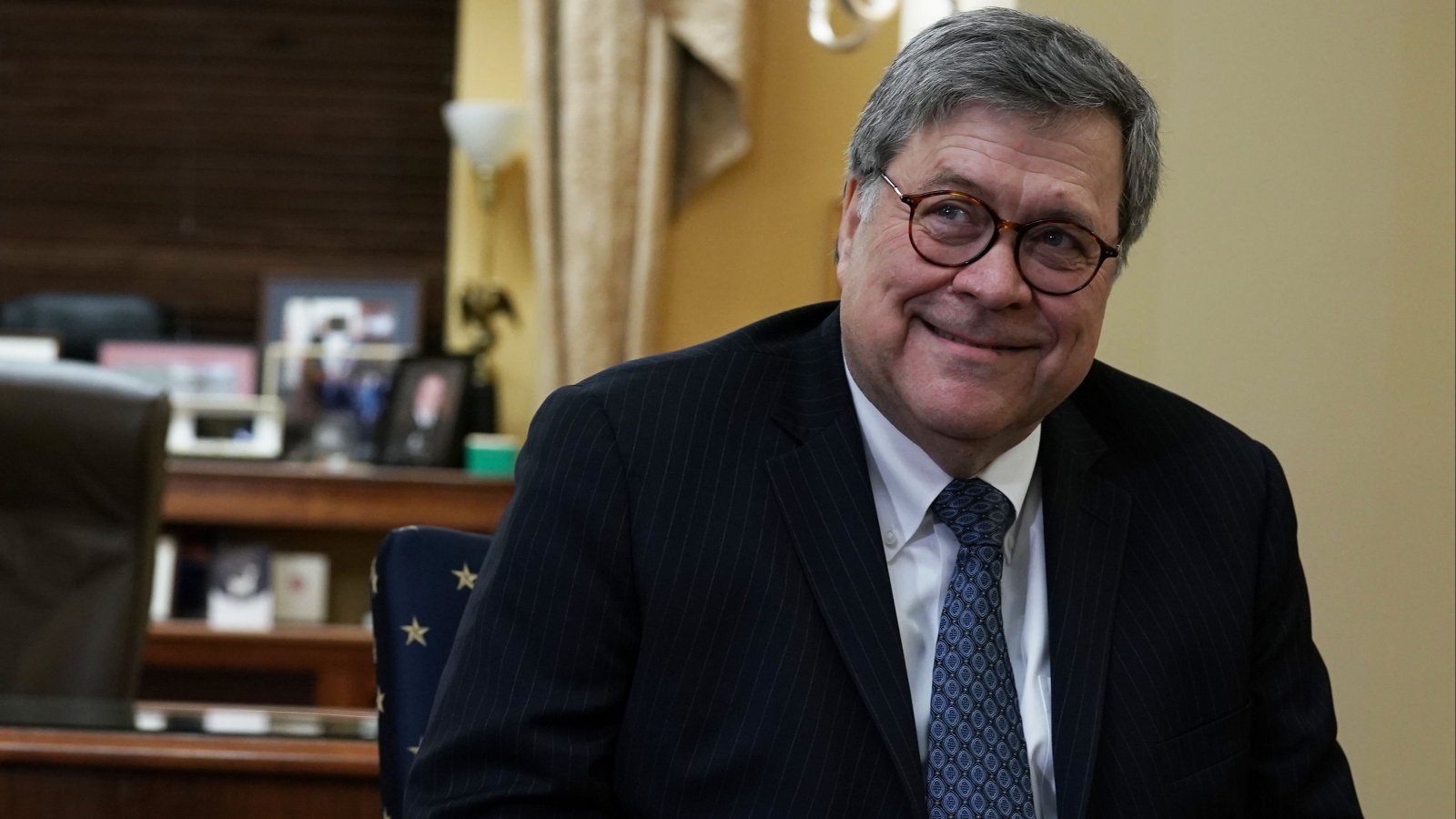
William Barr, President Trump's nominee to be the next attorney general, will appear before the Senate Judiciary Committee Tuesday and Wednesday and field questions about his intentions for the role should he be confirmed.
More specifically, Senators will want to know how he plans to oversee Special Counsel Robert Mueller's Russia investigation and whether he will allow it to continue unimpeded.
The fight over Mueller’s independence is the most visceral piece of the larger battle being waged between Democrats and Republicans over the independence of the Justice Department. Democrats accuse Trump of trying to bend the FBI to his will; Trump and his supporters charge the nation’s law enforcement agencies are conducting a “witch hunt” for political reasons.
Republicans have majority control of the Senate and the Judiciary Committee that will hold the hearing, which is scheduled to last two days, and so far there are no discernible cracks among the GOP that would suggest Barr’s nomination is in any jeopardy. Three Democrats on the panel are viewed as potential 2020 presidential candidates, and the hearing could offer an early glimpse into those lawmakers’ lines of attack against the Trump administration.
In private conversations with committee members last week, Barr offered assurances he has no plans to interfere with Mueller’s work.
“My intention will be to get that on the record before I’m satisfied,” said Sen. Dianne Feinstein (Calif.), the committee’s top Democrat. “It’s very important that Mueller be able to have no interference whatsoever.”
Barr reportedly is preparing to say publicly what he did behind closed doors – that he will not interfere with or shut down the investigation – but make no additional or specific promises.
Some Democrats have argued for Barr’s recusal from the Mueller probe because of his past public statements critical of some aspects of the investigation, and a private memo he sent to Deputy Attorney General Rod J. Rosenstein last June in which he called Mueller’s investigation into whether the president may have obstructed justice “fatally misconceived.” Barr also wrote that Mueller should not be allowed to subpoena the president about obstruction, saying an “interrogation” was not warranted.
One person close to Barr said he felt “very strongly” about the issue and wrote the memo hoping his advice might help officials who might be too busy to consider the issue thoroughly. Democrats have said his memo and past statements suggest a bias against the special counsel investigation.
(...)
Around the time Barr’s memo was submitted to the Justice Department, it was also sent to the White House, according to a person familiar with the matter. That could be a another troublesome point for Barr. Long before he submitted the memo, Barr had discussions about potentially serving as Trump’s lawyer in the investigation, though he declined. Barr’s allies say they do not believe that presents a conflict with his supervising the Mueller probe, though it is likely to generate questions at his confirmation hearing.
(...)
When his nomination was first announced last month, Barr’s main selling point was his long résumé of top Justice Department jobs and his years of experience as a lawyer in and out of government.
Yet his record also poses potential vulnerabilities, particularly when it comes to the Mueller probe. In the early 1990s, Barr was an outspoken critic of the prosecutor handling the Iran-contra case and pushed for President Bush to pardon those who were charged.
Democrats plan to press Barr on whether he would take a similar view toward possible pardons of former Trump campaign chairman Paul Manafort or others who have been convicted as a result of Mueller’s investigation, according to a Senate aide.
William Barr’s confirmation hearing expected to be a battle over Mueller’s future (WaPo)